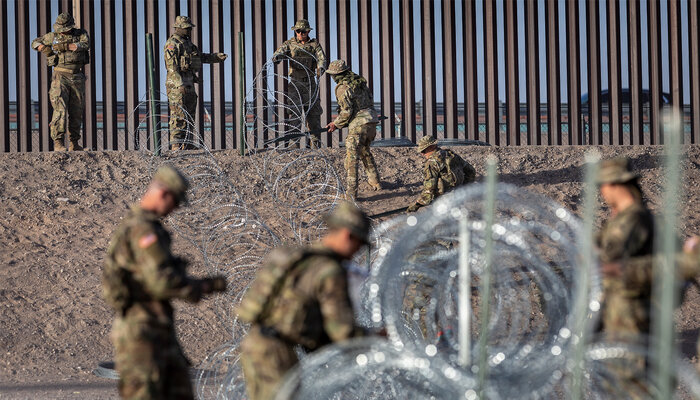When former President Trump says he would conduct mass deportations of millions of people if elected again, some of his advisers talk about deploying the states’ National Guard to help carry out the task, even in states that oppose this extreme immigration policy.
But would he have the legal authority to do that? The answer is yes, it is legally possible under the Insurrection Act, an outdated law that is in urgent need of reform to prevent abuses of power and adapt to modern times.
The Insurrection Act is among the most powerful emergency powers at the disposal of a president, who can use it to deploy the U.S. armed forces and the militia to suppress insurrections, quell civil unrest or domestic violence, and enforce the law when it is being obstructed.
There are few constraints to this presidential power — neither Congress nor the courts play a role in deciding what constitutes an obstruction or rebellion — and the law does not limit what actions military forces may take once deployed.
The law, which was last amended in the 1870s, has been rarely invoked. But it has been both used and misused in the past. Past uses include enforcing civil rights laws, helping companies break strikes, and suppressing so-called “race riots.”
Currently, there are calls for President Biden to invoke it to gain control of the Texas National Guard and order it to stand down in the city of Eagle Pass, where National Guard soldiers have occupied a park along the southern border to militarize the border and deny federal border protection agents access.
And let’s not forget Trump’s supporters urged him to use it to impede the transition of power after the 2020 presidential election.
Although there is no question that Biden could turn to the Insurrection Act to respond to a deliberate obstruction that prevents the federal government from performing immigration duties, he should refrain from doing so and instead seek to assert federal authority through the courts. The act should be a tool of last resort, and any power of this magnitude requires robust checks and balances that it currently lacks.
That’s why the Brennan Center has proposed comprehensive reforms that would narrow the criteria for deployment, specify what actions are and are not authorized when the act is invoked, and give Congress and the courts approval and review authority to serve as checks against abuse or overreach.
The bottom line is that no matter who is president, the Insurrection Act is ripe for abuse without guardrails, and it can be used to undermine our democratic institutions and individual rights.
This article was originally published in Spanish by La Opinión.



